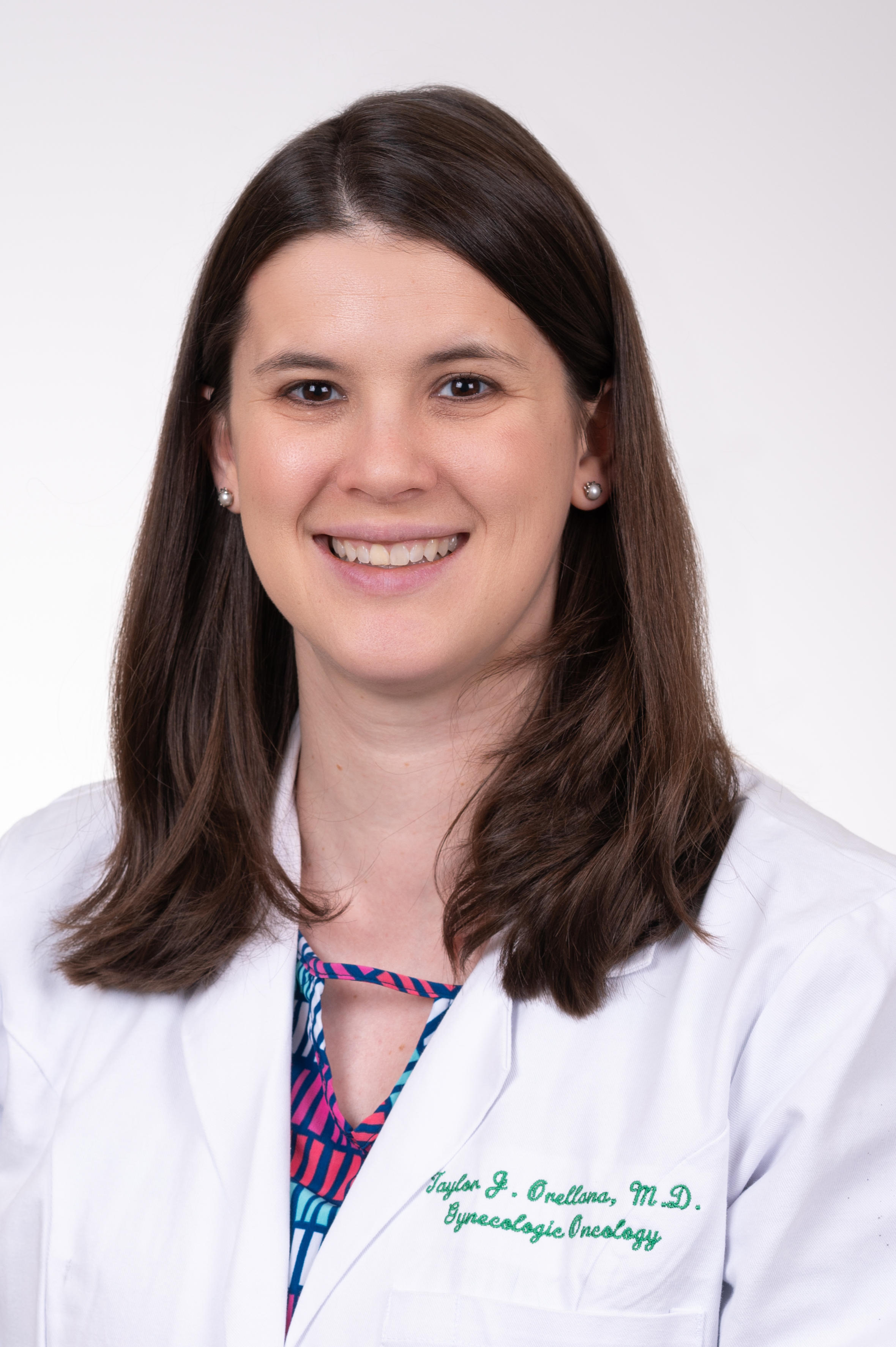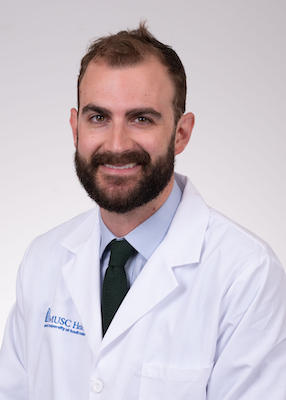Gynecologic cancer treatment
At Hollings, our gynecologic cancer specialists understand that your situation is unique and that you deserve a specially tailored plan based on your needs.
Our treatment options include:
Minimally invasive surgery
Our team is trained in the use of laparoscopic surgery and the da Vinci Surgical System, a robot that helps to increase surgical precision. These techniques are used for:
- Early pelvic mass evaluations.
- Staging and treatment for early endometrial, ovarian and cervical cancer.
- Robotic-assisted laparoscopic lymph node assessment.
If surgery will be a part of your treatment plan, check out our Gynecology Oncology Surgery Guide (PDF) to get a better understanding of what to expect and how to prepare.
Radiation therapy
- Specialized radiation oncology services to target therapy and decrease side effects.
- Intensity-modulated radiation therapy (IMRT) in addition to traditional external beam radiation.
- Vaginal brachytherapy for treatment of endometrial cancers.
Gynecologic cancer clinical trials
As a National Cancer Institute-designated cancer center, we firmly believe that clinical trials are an important part of cancer care. Clinical trials show us whether new treatments work better than existing treatments. That’s important for future patients. But clinical trials are also important for current patients, because they offer the possibility of early access to new therapies or protocols that could become the standard-of-care in the future.
We offer a variety of gynecologic cancer clinical trials, including trials developed by researchers here at Hollings, industry trials and trials organized by other cancer centers. Learn more about clinical trials at Hollings and see our current gynecologic cancer, cervical cancer, ovarian cancer and uterine cancer clinical trials.
Hollings is also a partner in the GOG Foundation, a collaborative network of more than 400 sites across the country doing gynecologic cancer clinical and translational research, and a member of NRG Oncology, a cooperative group that organizes multi-institution cancer clinical trials. Through membership in these groups, Hollings is able to offer a wider variety of clinical trials. Ask your doctor if there is a clinical trial that fits your individual needs.
Refer a gynecologic cancer patient
To refer a gynecologic cancer patient to Hollings, please call patient referral coordinator Morgan Krohn (843-985-0580). If you are a referring provider, please submit our GYN Oncology Referral Form.
Nurse navigator support
You and your doctor will discuss the pros and cons of each option and decide on the best course of treatment for you. Our gynecologic cancer nurse navigators, Brooke Winkler, MSN, RN, and Antonio Rivera, BSN, RN, OCN, at our Charleston-area locations and at Patty Parnell, BSN, RN, at Tidelands, will help you understand what to expect during treatment and answer questions you may have.














